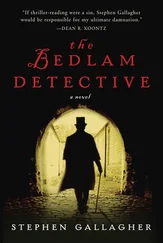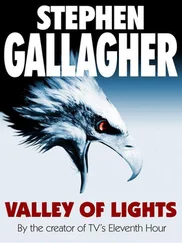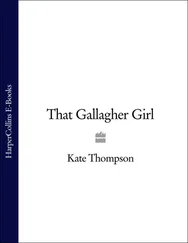“Good times,” he said, forcing a smile. “But how are you, sir? Enjoy your day off?”
“Oh yes,” I said. “Was swell.”
The attack passed and, soon after, the strident “All clear” sound rang out. I told Ibrahim to get a good night’s rest and then tried to follow my own advice. I left him in the bunker with his jerky wrappers, knowing I should talk to him some more, but unable to summon the energy. We all had our personal tragedies to bitch about.
We left for Ashuriyah at dawn. I snapped my bracelet and dropped broken beads onto the desert road one at a time, like breadcrumbs. What had once led home now led nowhere.
The mortar attack’s origin point came from eastern Ashuriyah, leaving Burger King a pile of ash, with two Bengali contractors and one soldier dead. We needed to end the war, and end it immediately. During a meeting in his room, Captain Vrettos asked for ideas.
“Split the platoons,” Chambers said. “Platoon leaders take half the guys for the day, platoon sergeants take the rest at night. Doubles our patrols. They focus on counterinsurgency, we focus on the killers.”
“We’d be stretched real thin,” First Sergeant said.
“Done,” Captain Vrettos said. “I’ll try anything at this point.”
I didn’t have any better ideas, so I kept my mouth shut.
Afterward, Captain Vrettos found me in the hallway. Hollow-eyed, he asked me to cover for him that afternoon at the wake of a Sunni tribal leader. He hadn’t slept since the firefight three days before. I said of course. I couldn’t tell if it was exhaustion or gratitude that caused his eyes to water.
Outside, the sun was a hammer. Midday, high July, we piled into our Strykers once again. The soldiers napped on one another’s shoulders, rifles between their legs. I stood out of the hatch and watched sandstone buildings drift by, then hills. Even though we drove south and then east, away from the stone arch, I could still feel the wire-rim glasses of the Cleric on us, watching.
Billowing chimney smoke marked the house of the dead sheik, a black funeral flag draped from a balcony. A lone cypress stood idle at the edge of the yard. The hand-me-down Humvees of the Iraqi Army and the black Mercedeses of the tribal leaders lined the side of the dirt road.
“We late, sir?” Hog asked, parking behind the other vehicles.
“Thought we’d be early,” I said. “So of course.”
I’d never met Abu Mohammed. He’d been ill since our arrival. But he’d long been a patriarch in the al-Badri tribe, and his sons claimed he was an early supporter of the Sahwa movement. He’d been buried the day before, at a Sunni graveyard, today marking the beginning of the three-day mourning ceremony.
A large cylindrical tarp had been erected in front of the house, under which twenty or so visitors had gathered. Leaving my helmet and rifle, I told Batule and Snoop to join me. I asked Snoop to leave his plastic rifle. I considered telling him to do the same with his ski mask, but didn’t, thinking about what Saif said about the difference between allies and partners.
Rolls of green Astroturf had been spread across the yard. One of Abu Mohammed’s sons welcomed me as I stepped from dirt to turf, and I handed him a bouquet of desert poppies I’d picked that morning in the meadow behind the outpost. In dense Arabic, he asked where Captain Vrettos was.
“Emergency at Camp Independence,” I managed. “He sends his condolences.”
Under the tarp, I greeted groups of Iraqi men, most of whom I didn’t recognize, raising my right hand to my heart and cupping it. The old men returned the gesture, but most of the younger men insisted on shaking hands. A carload of women in burqas arrived, and I watched them enter the house, taking off their shoes at the entrance. I asked Snoop where they were going.
“Women and men can’t mourn together,” he said. “They go into the house to drink coffee and tell stories of the dead sheik. And make the food, yo.”
The atmosphere was solemn, and I quickly ran out of ways to say, “He was a good man.” As servants brought out the first platters of food, Saif found me and explained that fried eggplant served cold on pita bread was a traditional dish. It was a wild garden of dough and oils, and we ate with our hands, sharing the platters. Following Saif’s lead, I dipped the bread into a side of hummus. We washed the food down with spiced chai, which somehow cooled me in the heat.
“Did you hear?” Saif asked through mouthfuls. “The police released Ismail this morning. Saw him leave his cell. Sullen young man. Didn’t look too beaten, likely because you intervened. That was a good thing you did.”
I was surprised they’d released the Barbie Kid already, but the brigade JAG officer had determined an attempted sai poking didn’t qualify as a murder attempt. I decided to let Chambers hear about the teen’s release from someone else; he’d just rage about how much the army and Iraq had changed for the worse.
The second group of platters consisted of dried apricots and some sort of chopped salad I had no interest in. Fat Mukhtar arrived, too, his three wives and many children hustling inside with bowed heads, armed guards and the toucan Sinbad staying outside with us. One of the guards held the bird on his forearm, though it nibbled from Fat Mukhtar’s hand with its keel bill as he fed it bread from the communal platter. Saif grunted at the scene, but said nothing. Neither did anyone else.
“There’s a strange feeling in the air now,” Snoop whispered in my ear.
The bird regurgitated into his feeder’s hand, a yellow and deficient slop. Fat Mukhtar rolled his eyes and wiped his hand clean on his guard’s black muscle shirt. He shouted something in Arabic, which brought laughs from throughout the tarp.
“He say the Reconciliation means he must square with Shi’as,” Snoop translated. “But he doesn’t have to square with toucans.”
I smiled at the mukhtar . His greeting under the tarp proved far more tepid than the hug I’d received on the Sunni Strip, just a limp peace sign under glazed eyes. Around the collection of frail old men, he seemed even larger than usual. His goatee was freshly trimmed, as usual, but his thatch of curls had been slicked back with grease for the occasion. As we made our way through the third course, a mix of goat meat and brown rice, he walked to our side of the circle, speaking low to Snoop.
“He say it is wrong to talk business today, but wishes to know if you’ve learned Haitham is the Cleric. This true, LT? It doesn’t make sense to me.”
“Yeah.” Through his mask, I could sense Snoop’s skepticism. “Battalion told me yesterday. Crazy, but true.”
“Surf’s up,” Fat Mukhtar said.
Then he asked for us to turn off the machine in the Strykers that made cell phones stop working, as the sheik’s sons were expecting calls from loved ones.
“No idea what you’re talking about. We don’t have that kind of technology,” I said, plain-faced. “Excuse me, I have a completely unrelated matter to attend to.”
I walked past the cypress tree to our vehicles and gave Dominguez the “kill the jammer” hand-and-arm signal; remote-detonated IEDs weren’t a concern at the moment. Returning to the tarp, I noticed something odd on the shoulder of one of Fat Mukhtar’s guards, standing off by himself and holding a silver AK-47. I called over Snoop.
“The fuck?” I pointed to the Ranger scroll he’d sewn onto his khaki Sahwa top. “Where’d you get that?”
From a Ranger, of course. It was a gift. They’d worked together on a recent mission he couldn’t tell us about; it was “top secret.” I thought about how battalion had learned of the Cleric’s identity — the still-alive one — and looked past the guard to the waddling mukhtar . He held his toucan in front of a sad, wizened old man, laughing while the bird croaked.
Читать дальше




![Ally Carter - [Gallagher Girls 02 ] - Cross My Heart & Hope To Spy](/books/262178/ally-carter-gallagher-girls-02-thumb.webp)
![Ally Carter - [Gallagher Girls 01] I'd Tell You I Love You But Then I'd Have to Kill You](/books/262179/ally-carter-gallagher-girls-01-i-d-tell-you-i-lo-thumb.webp)






